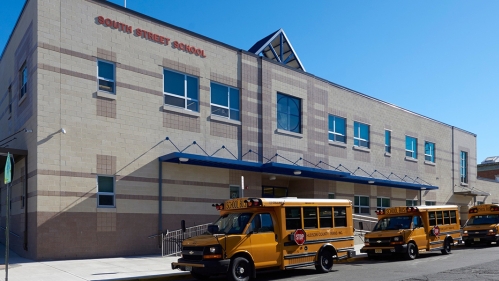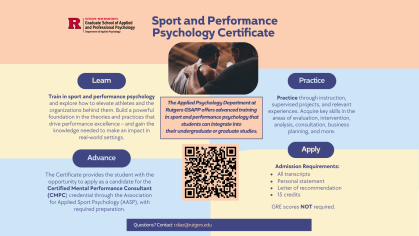The Newark Public School District, the state’s largest, serves over 6,000 students with special needs, and support services are in high demand. The Douglass Developmental Disabilities Center (DDDC), a community-based center under the Graduate School of Applied and Professional Psychology (GSAPP), may have the solution. It recently partnered with the district to develop an applied behavior analysis (ABA) model for young children with autism spectrum disorder (ASD).
ABA is a data-based method of treatment for improving, managing, or reducing socially significant human behaviors. The Center has been working with Newark’s South Street School in their preschool and kindergarten through first grade classrooms to use ABA techniques with students on the autism spectrum. In this case, the team uses interventions supported by research on behaviors that are important to a child’s development, such as social skills, language, academics, daily living, and self-care.
Shelley Bertino, a Behavior Analyst at the DDDC and Consultant for this program, is taking the science of ABA and implementing it in the classroom to provide an enriched learning environment for the students. “This collaboration has allowed for straightforward and compassionate dissemination of the fundamentals of ABA and best practices in promoting successful, functional outcomes for students,” said Bertino.
The mutually beneficial partnership provides Rutgers master’s, doctoral, and pre-doctoral students who are specializing in psychology and education with practical, on-site training - truly a win-win. Their integration into the model school program increases classroom staffing ratios, delivering the intensive instruction needed for students with autism, while simultaneously providing graduates students with valuable experience in a public-school setting.
Said Mr. Baron, a teacher at South Street School, “Every staff member I have encountered has been welcoming, friendly, professional, and informative. They have outlined a model of what servicing students should look like through ABA. This partnership has provided me with a greater and expanded understanding for the value of strategic scheduling, classroom arrangement and management, allocation and use of resources, diverse data collection, delivery of instruction, and much more!”
Meghan Deshais, Assistant Professor, GSAPP, and Debra Paone, Director of Training and Consultation, DDDC, are the Principal Investigator and Co-Investigator in a related research study, "A Pilot Investigation of Emergent Multi-Class Imitation Training" and are working with preschoolers with autism attending Quitman Community School in Newark. Many children with ASD have difficulty learning to imitate, which is important, because it helps children learn new skills such as communication and socialization. The study’s purpose is to evaluate a comprehensive intervention protocol designed to rapidly teach imitation to young children diagnosed with ASD.
“The DDDC continues to exhibit the GSAPP tenets of providing vital graduate student training, conducting innovative research, and serving the underserved,” said Arpana Inman, dean of GSAPP.
The team is considering expanding this model to other districts. According to the Center for Disease Control and Prevention (CDC), New Jersey now has the third highest rate of autism in the nation: 1 in 34 children.
To read about the DDDC, its history, impact, and services, click here: https://dddc.rutgers.edu. For more about GSAPP’s ABA Programs, visit: https://gsapp.rutgers.edu/programs/applied-behavior.




